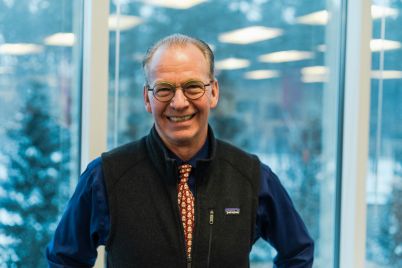By Ala Kaymaram
Staff Writer
Michael Quail, professor of mathematics, has been teaching at WCC for 22 years. He has taught from arithmetic up to calculus, and is currently teaching college algebra, calculus I and calculus III.
The following interview has been edited for length and clarity.
Q: Can you tell us a little bit about your background? Where did you go to school and what did you study?
A: I went to Wayne State University for my undergraduate. I double majored in psychology and mathematics.
Q: How did your interest in math come about?
A: I have always done well on it, and it has always come very easy to me.
Q: How did your interest in psychology come about?
A: I was going to college to see what I wanted to do. I was a pre-medical student at first. I experimented here and there and fell in love with psychology. I was really interested in why people behave the way they do. My psychology professor at Wayne State University was amazing. She lectured in a hall of 300 people, and at the end of her lectures, everybody stood up and applauded her. That’s how good she was.
Q: How did you decide to pursue a career in teaching mathematics?
A: When I wanted to mix my love of people and my love of mathematics, it seemed teaching was the way to go.
Q: Have you taught any other subjects than math?
A: I have taught in the psychology department here. It was an online course in abnormal psychology.
Q: How did you decide to teach at WCC?
A: I have taught part time at Schoolcraft College in Livonia, and Oakland Community College. I love the community college atmosphere. It’s so much different than a high school atmosphere. I applied to different places. I interviewed here at Washtenaw, and got the job. It’s the best thing that has ever happened to me. It’s a great job and close to home.
Q: What is your favorite part of your job?
A: Working with small groups and individuals in the classroom. I think the only way to make progress is to sit down with students and tune into their individual learning styles. I really enjoy when I see a light bulb turn on in somebody’s head. That’s the best part of my job.
Q: What is the most important lesson you have learned as a teacher?
A: To listen to what my students are saying and the problems that they are having. And to understand where they are coming from, as opposed to having rigid standards. It’s really understanding people and understanding that they have lives that can be somewhat complicated, and that you have to be aware of that, and teach accordingly.

